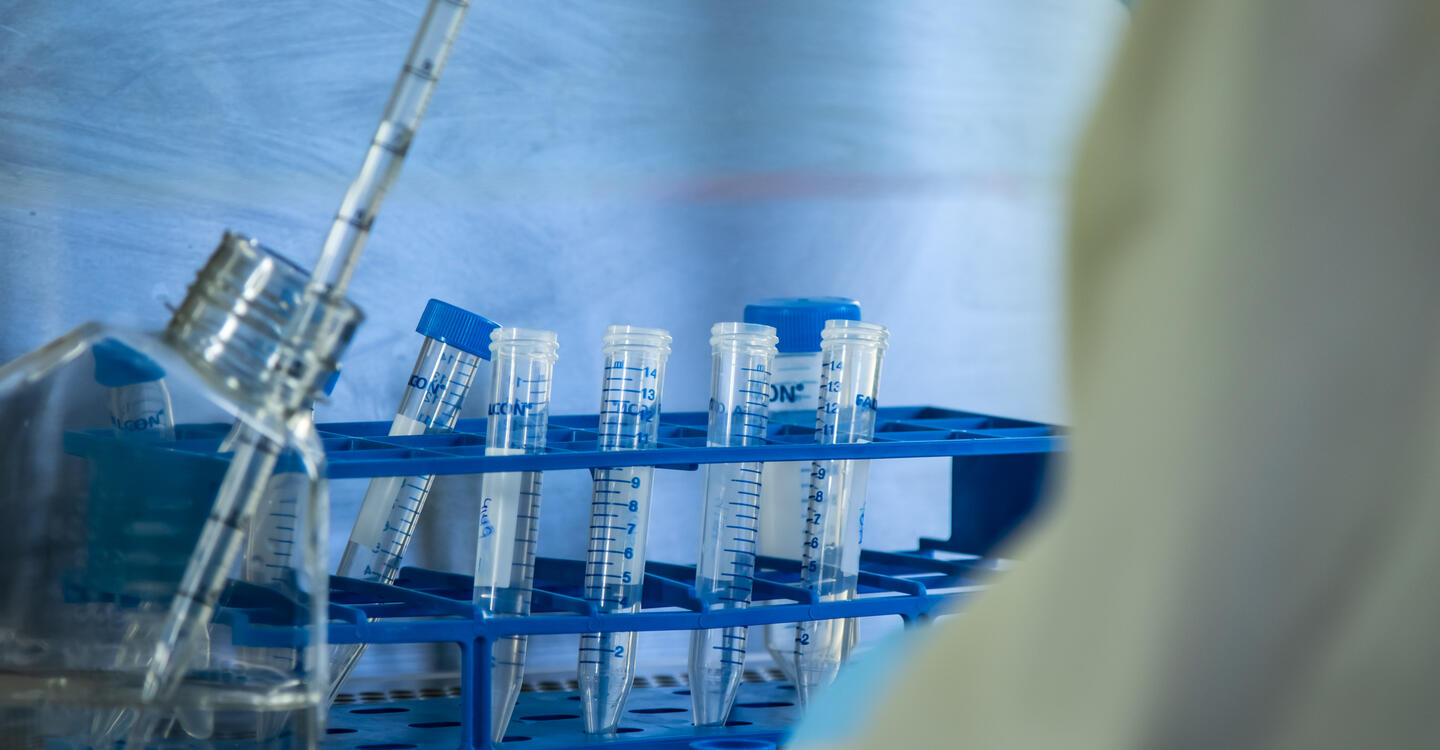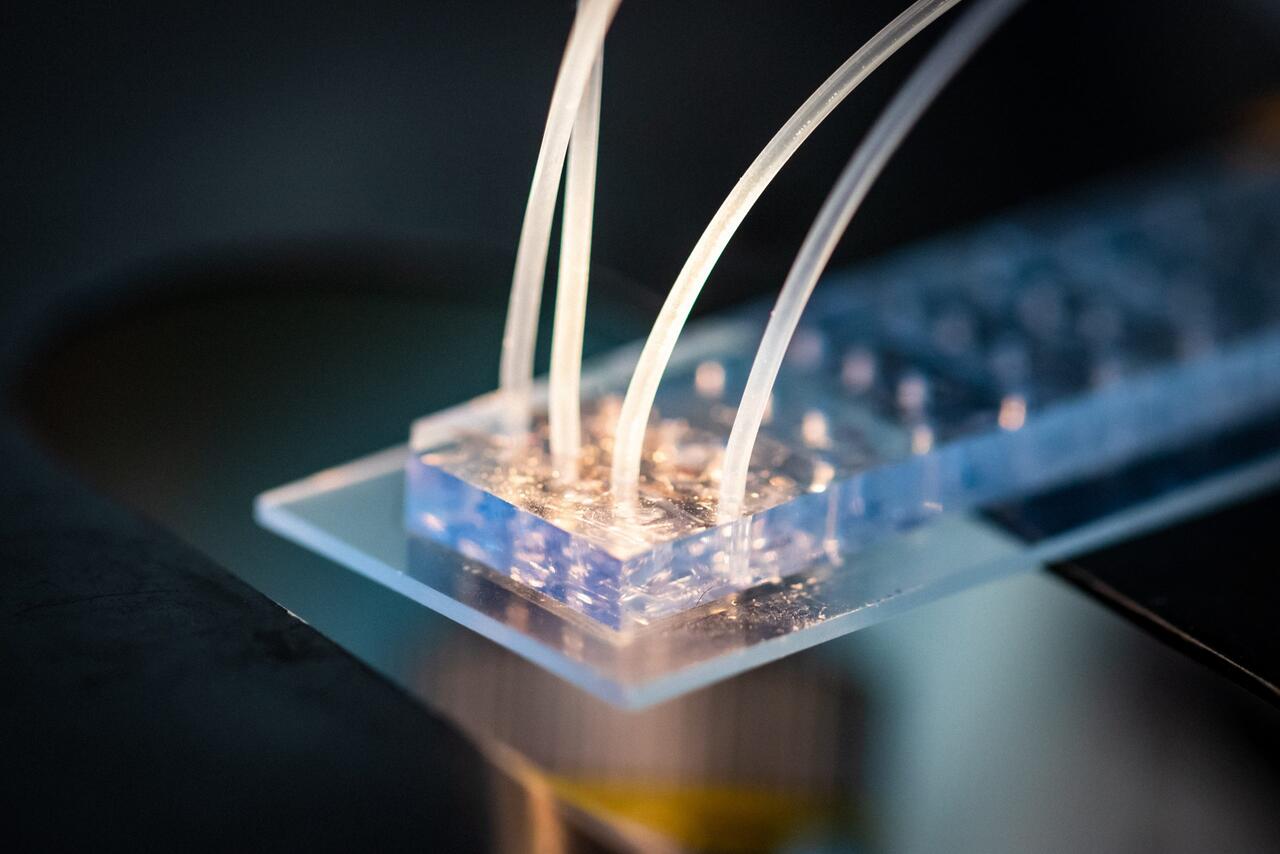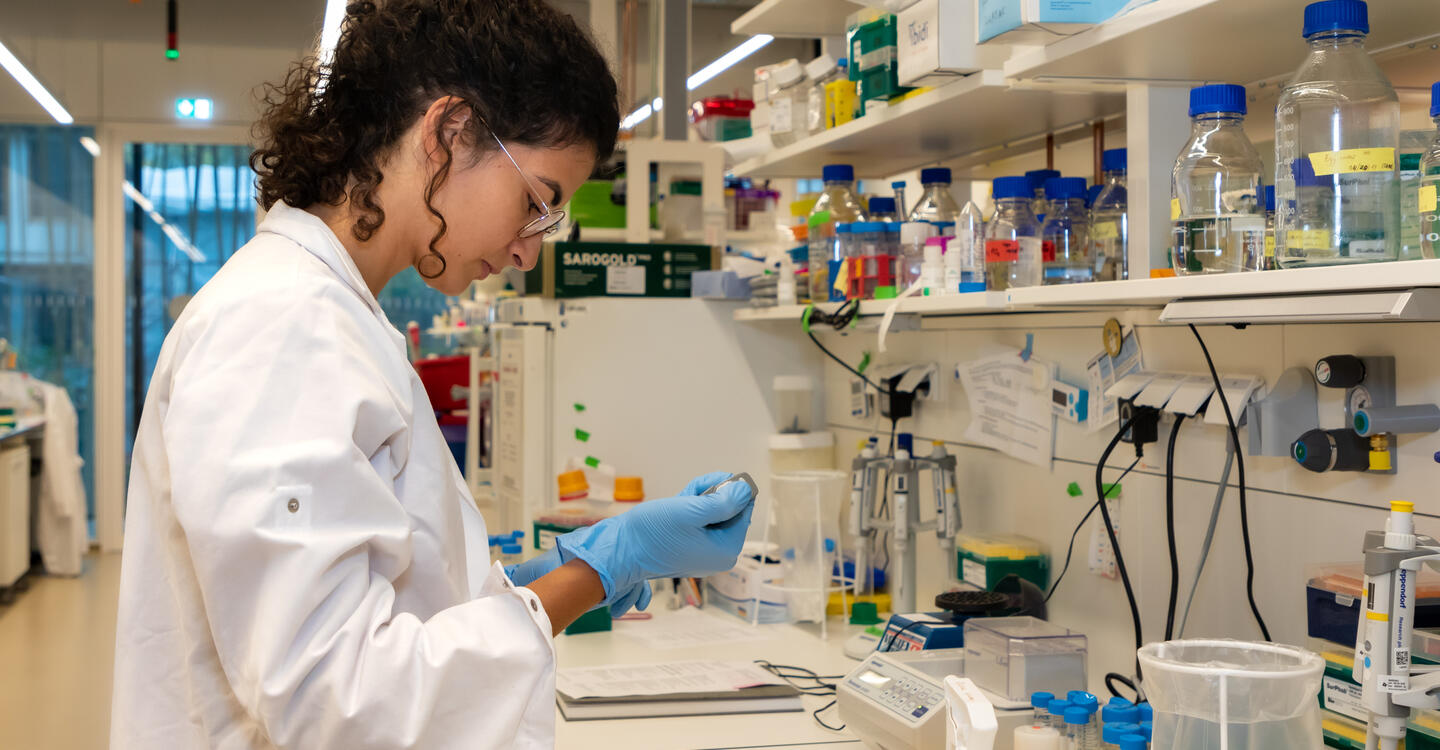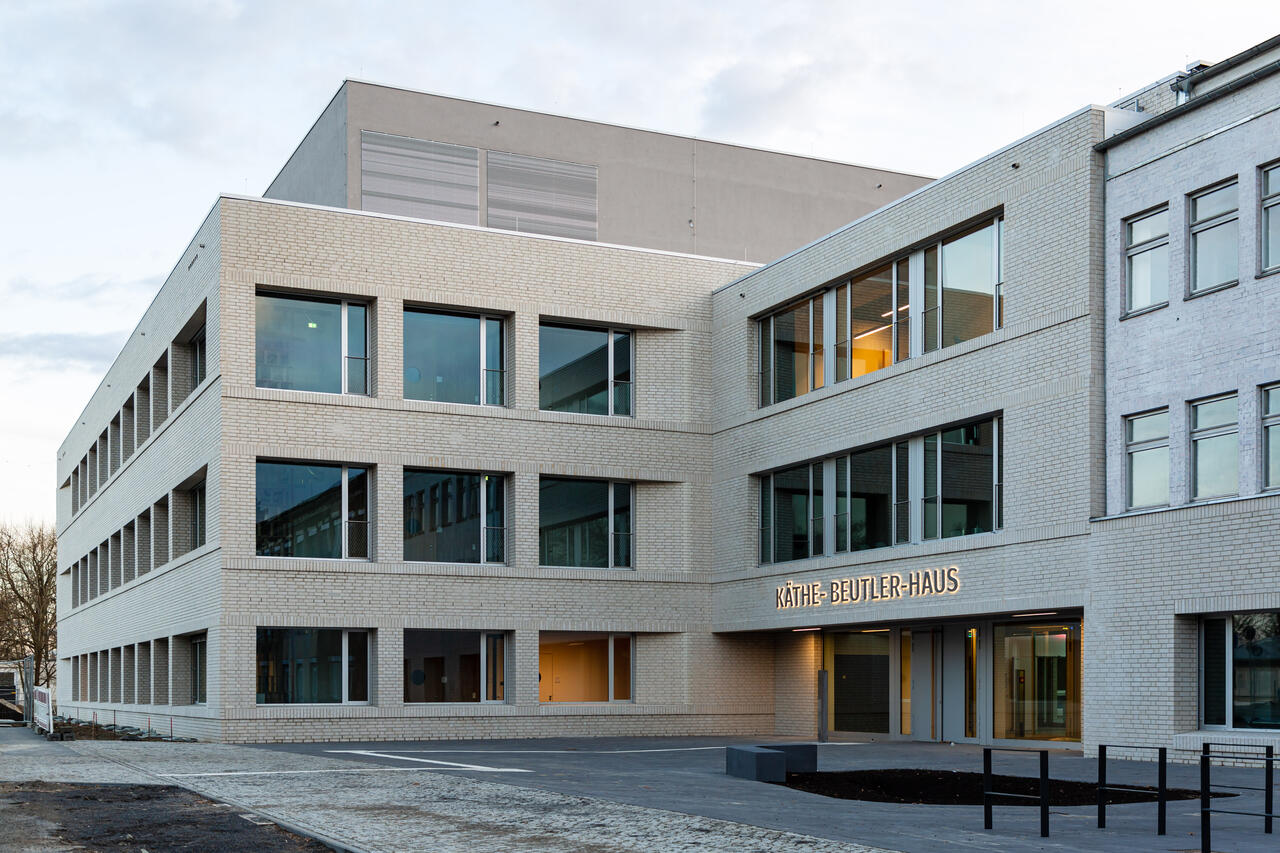
Science on Campus
Excellent Health Research
Berlin-Buch is recognized internationally for its excellence as a location for science. Decisive for this are the Max Delbrück Center for Molecular Medicine in the Helmholtz Association (MDC) and the Leibniz-Forschungsinstitut für Molekulare Pharmakologie (FMP) as well as the Experimental and Clinical Research Center (ECRC), which is operated jointly by the MDC and the Charité, and the Berlin Institute of Health (BIH). The ECRC and the BIH are specialized in clinical and translational research.

Top research for tomorrow’s medicine
The Max Delbrück Center for Molecular Medicine in the Helmholtz Association (MDC) is one of the world’s leading biomedical research institutions. Max Delbrück, a Berlin native, was a Nobel laureate and one of the founders of molecular biology. At the MDC’s locations in Berlin-Buch and Mitte, researchers from some 60 countries analyze the human system – investigating the biological foundations of life from its most elementary building blocks to systems-wide mechanisms. By understanding what regulates or disrupts the dynamic equilibrium in a cell, an organ, or the entire body, we can prevent diseases, diagnose them earlier, and stop their progression with tailored therapies. Patients should benefit as soon as possible from basic research discoveries. The MDC therefore supports spin-off creation and participates in collaborative networks. It works in close partnership with Charité – Universitätsmedizin Berlin in the jointly run Experimental and Clinical Research Center (ECRC), the Berlin Institute of Health (BIH) at Charité, and the German Center for Cardiovascular Research (DZHK). Founded in 1992, the MDC today employs 1,600 people and is funded 90 percent by the German federal government and 10 percent by the State of Berlin.

From the lab to the patient
The Charité and the MDC jointly operate the Experimental and Clinical Research Center (ECRC) in Buch in order to make fi ndings and developments from the laboratory available to patients quickly and directly. With a clinical research station, seven interdisciplinary university outpatient departments that cooperate closely with MDC research groups, and the latest technologies, the ECRC offers an ideal basis for patientoriented research and clinical studies.
The institutions on the Buch campus collaborate closely and integrate basic and patientoriented research in a unique way. The results of this multifaceted collaboration are leading to better prevention, diagnosis and treatment of diseases – increasingly also with marketable procedures and products. The impact of the research location Berlin-Buch on the economic development and the job market situation in Berlin as a whole is increasing.

Research has an impact!
How can processes in the body and the development of diseases be explained on the molecular level? Which drugs can specifically target and intervene in the biochemistry and physiology of the body? Research activities at the Leibniz-Forschungsinstitut für Molekulare Pharmakologie (FMP), Germany’s only non-university research institute for molecular pharmacology, are concerned with these questions. FMP employees conduct basic research with the goal of identifying new bioactive molecules and characterizing their interaction with their biological targets in cells or organisms. These molecules serve as tools in basic biomedical research and can be further developed for the treatment, prevention or diagnosis of disease. For this purpose, researchers from the fields of chemistry, biology, biochemistry, pharmacology, physics and medicine work closely together to optimize the medicine of the future.
The FMP provides state-of-the-art technologies for this purpose: For example, facilities for NMR spectroscopy for the structure elucidation of biomolecules are located in three separate buildings. To efficiently search for new drugs, high-performance robots in the screening unit test huge substance libraries for their physiological effects. The FMP remains as initiator and continues to be associated with EU-OPENSCREEN as a partner institute. A total of approximately 300 employees and guest researchers work at the FMP. The budget for 2018 totaled 28.9 million euros, including 8.2 million third-party funds. The FMP is a member of the Leibniz Association.

Events
all events28.01.2026, 17:00-
28.01.2026, 19:00
Music Meets Science
25.02.2026, 10:00-
27.02.2026, 18:00
JUGEND FORSCHT – 61. Regional-Wettbewerb: Maximale Perspektive
18.03.2026, 08:30-
19.03.2026, 15:00
vocatium Berlin focus 2026: Fachmesse für Ausbildung+Studium